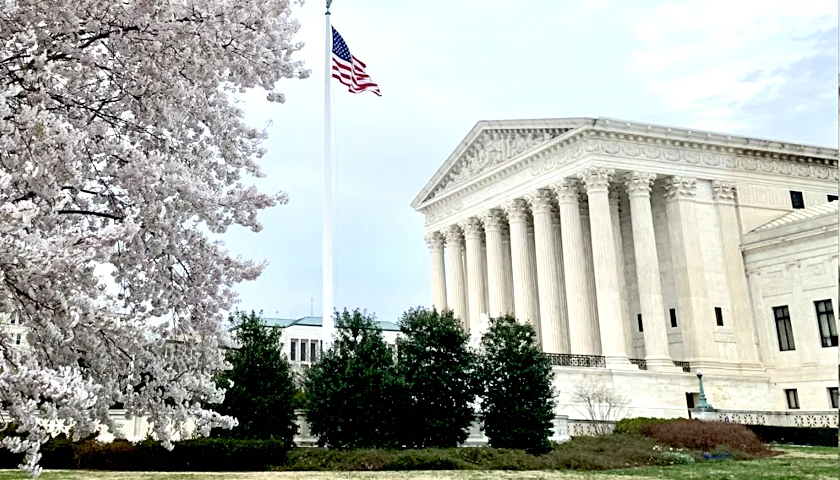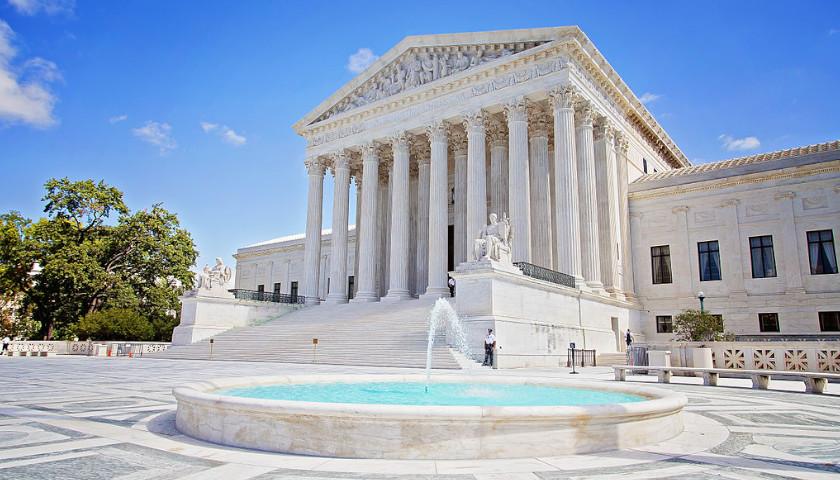Both Arizona Gov. Doug Ducey and Arizona Attorney General Mark Brnovich joined separate amicus curiae briefs with other governors and attorneys general in an abortion case out of Missouri that would gut Roe v. Wade by banning most abortions after 15 weeks of pregnancy. Ducey joined 11 other governors led by South Carolina Governor Henry McMaster in Dobbs v. Jackson Women’s Health Organization to demand that the Supreme Court uphold the state law and undo Roe v. Wade. Brnovich signed on with 23 other attorneys general led by Texas Attorney General Ken Paxton to ask that the court overrule Roe v. Wade because it is “erroneous, inconsistent, uneven, and unreliable.”
Ducey said in a statement, “The Constitution preserves the rights of the states by specifically enumerating the authority granted to the federal government. Unfortunately, almost 50 years ago, the U.S. Supreme Court decided to ignore the Constitution and created policy which has led to the over-politicization of this issue for decades.”
The controversy involves challenging 48 years of Supreme Court precedent under Roe v. Wade, which held that a fetus only becomes viable at 24 weeks of pregnancy. Prior to that, the 7-2 court stated that a woman’s right to privacy outweighs the interest of the fetus, so states cannot regulate abortion earlier than that. The U.S. is one of only seven countries in the world to allow abortion after five months.
States have made inroads into chipping away at Roe v. Wade in recent years. So far this year, 19 states enacted nearly 100 new restrictions on abortion, including 12 bans. Texas, South Carolina, Oklahoma, and Idaho banned abortions once a fetal heartbeat can be detected, which is six weeks. Arkansas and Oklahoma banned all abortions except in the case of medical emergencies and Montana banned abortions at 20 weeks. However, the major state laws in this area have not gone into effect yet, either due to legal challenges or later effective dates.
Getting the Supreme Court to reverse precedent is rare, due to stare decisis in law, meaning “standing by things decided.” Chief Justice Roberts declared during his confirmation hearing that Roe v. Wade is “super duper precedent.”
Mississippi’s Gestational Age Act exempts abortions for medical emergencies or fetal anomalies. Jackson’s Women’s Health Center, the only abortion clinic left in Mississippi, brought the lawsuit after the law was passed in 2018. Both the federal district court and the Fifth Circuit Court of Appeals ruled that the law was unconstitutional. In its petition to the Supreme Court, Mississippi, represented by Thomas E. Dobbs, the state health officer of the Mississippi Department of Health, argued that “nothing in constitutional text, structure, history or tradition supports a right to abortion.”
Some would take the debate further than just leaving abortion up to the states. Scholars John M. Finnis and Robert P. George submitted their own amicus curiae brief a few days ago. Considered the most watched abortion case in a generation, SCOTUS is expected to hear the case in early October, with a decision at the end of June in 2022. Since the Supreme Court now has three Trump appointees who are considered pro-life, and six of the court’s nine justices now lean to the right, some believe there is a chance they will uphold Mississippi’s law.
– – –
Rachel Alexander is a reporter at the Arizona Sun Times and The Star News Network. Follow Rachel on Twitter. Email tips to [email protected].






[…] Ducey and Arizona Attorney General Mark Brnovich joined separate amicus curiae briefs with other governors and attorneys general defending Mississippi’s […]